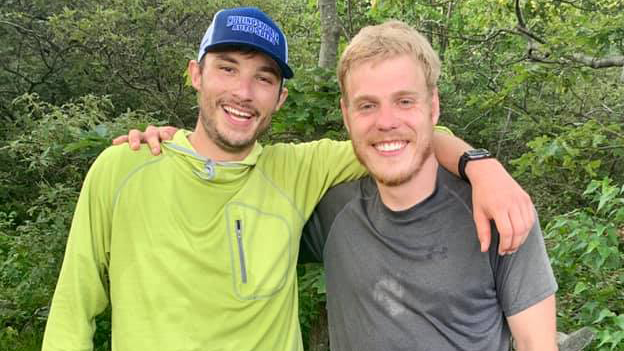A wonderful article featured on BBC News this week about two mountain climbers with type 1 diabetes who are bidding to climb the highest points of all 50 US states in just 50 days.
The two friends, Michael Shelver and Patrick Mertes, are embarking on 16,000 miles of coverage, including hiking 315 miles of trails. They believe they will be the first people with type 1 diabetes to achieve the 50 in 50 mission.
It is thought that only 274 people have hit all 50 of the highest points, but this is over the course of their whole lives. Not only is climbing all 50 peaks in 50 days a monumental challenge, but there’s the added consideration of diabetes management.
Chief among the considerations is insulin storage, and making sure it doesn’t freeze. Michael, who has had type 1 diabetes since the age of 10, admits temperature control is amongst the hardest aspects of the trek.
The 25-year-old said, “We have to make sure our insulin is always in the normal temperature range, as it doesn’t work properly outside of that. We had to wear a lot of layers, with our pumps inside our inner jackets to make sure it stayed warm and that the tubing was okay, as that’s more likely to freeze. None of it could be exposed to the air or it would freeze pretty quickly.”
Blood sugar control is also more challenging. Patrick was diagnosed with type 1 diabetes in 1997 aged nine, and said when they climbed Denali in Alaska, North America’s highest point at 20,310ft (6,190 metres), they experienced blood sugar highs alongside the literal highs.
“What I’ve struggled with most so far was the altitude on Denali,” said Patrick. “We did it fairly quickly in terms of the standard route – most people take up to 17 days and we summited in nine. That did have some effect on blood sugar.”
At the time of writing, Patrick and Michael have completed the East Coast summits and are now traveling to the Midwest before embarking on the West Coast. Follow their progress here.
What is truly inspiring about the duo’s adventure is not just their refusal to let diabetes stand in the way, but that they have planned in advance so thoroughly. Having diabetes doesn’t need to hold you back, but preparing sufficiently is important. Ensuring you are equipped as possible means you can enjoy your life as normal without diabetes surprising you.
Best of luck from all of us at Diabetes.co.uk, Michael and Patrick!
Picture: Project50in50



